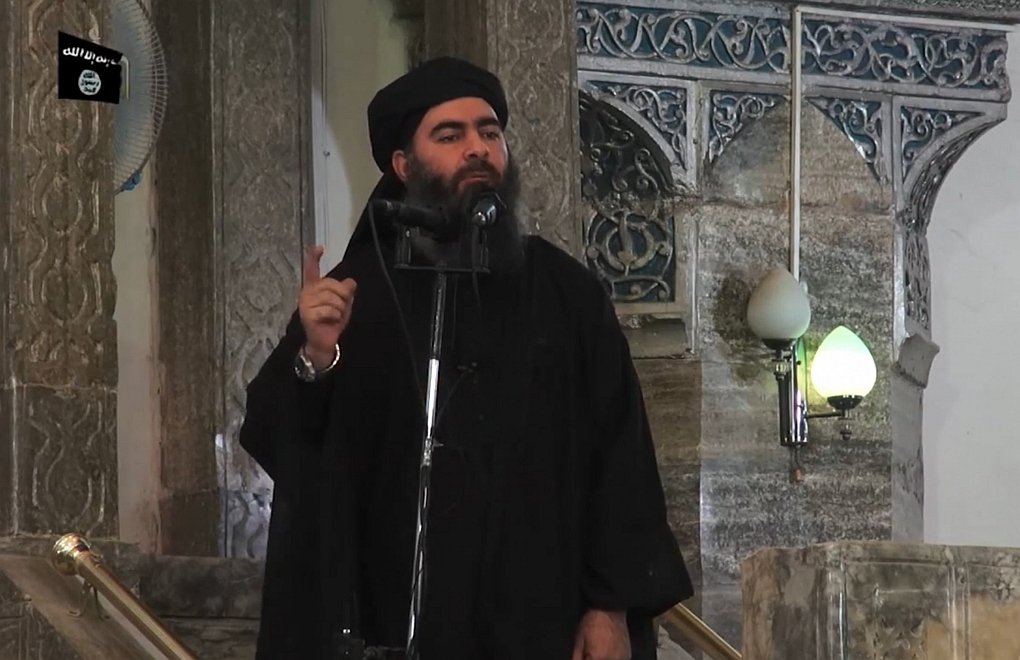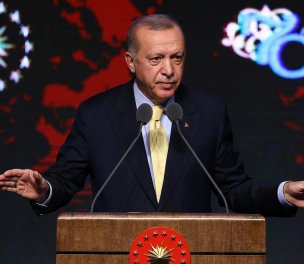Click to read the article in Turkish / Kurdish
Turkey has captured of slain former ISIS ringleader Abu Bakr al-Baghdadi's sister, Rasmiya Awad.
AP and Reuters agencies first reported the arrest of Awad, quoting "high-level officials" from Ankara, saying that she was captured in a container in the Syrian border town of Azaz, which is currently controlled by Turkey and its Syrian allies.
Fahrettin Altun, the Communications Director of the Presidency, confirmed the reports on Twitter: "Turkey's fight against terror regardless of its ideology or origin continues unabated. The arrest of al-Baghdadi's sister is yet another example of the success of our counter-terrorism operations."
Al-Baghdadi declared a caliphate after capturing Iraq's Mosul and led ISIS as it snapped up large swaths of Iraq and Syria in 2014 and 2015.
US President Donald Trump announced on October 27 that al-Baghdadi was killed in a late-night raid in Idlib province in northwest Syria, a few kilometers away from the country's border with Turkey.
Altun said in another tweet, "Our determination to bring justice to those who seek to terrorize our people and destabilize our region cannot be questioned."
"Much dark propaganda against Turkey has been circulating to raise doubts about our resolve against ISIS. We have been leading in the fight against terrorism in all its forms."
Much dark propaganda against Turkey has been circulating to raise doubts about our resolve against Daesh.
— Fahrettin Altun (@fahrettinaltun) November 4, 2019
We have been leading in the fight against terrorism in all its forms.
Our strong counter-terrorism cooperation with like-minded partners can never be questioned.
About Abu Bakr al-BaghdadiBorn on July 28, 1971, in Iraq's Samarra city, his birth name was Ibrahim Awad Ibrahim Ali al-Badri al-Samarrai. He studied Islamic law in Iraq's capital, Baghdad, and later became an academic. During the US invasion of Iraq, he was arrested in 2004. Baghdadi became a leading member of the Islamic State of Iraq (ISI), also known as the Iraqi branch of al-Qaeda when it was founded in 2006. He became the leader of the ISI in 2010 when its leader Abu Omar al-Baghdadi was killed. After the Syrian war began in 2011, the ISI started carrying out operations in Syria. The group changed its name to the Islamic State of Iraq and Sham (ISIS) in 2013. At that time, the group's allegiance was still to al-Qaeda. Later in 2013, al-Qaeda leader Ayman al-Zawahiri announced that the Syrian branch of the group was abolished. ISIS refused to obey Zawahiri and broke its allegiance to al-Qaeda. While it continued operations in Syria, about 80 percent of the foreign fighters of the Jabhat al-Nusra, the Syrian branch of al-Qaeda at the time, pledged allegiance to ISIS. On June 29, 2014, Baghdadi made his famous speech at the Great Mosque of al-Nuri in Mosul, Iraq. In 2014 and 2015, the "caliphate" controlled large parts of Iraq and Syria, including oil-rich regions. Baghdadi was included the World's Most Powerful People list by Forbes magazine in November 2014. |
(PT/VK)








